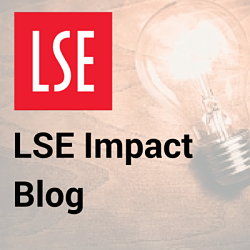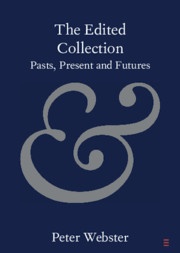In Defense of the Edited Collection

As a form of academic publishing, the edited collection has had a bad press. Widely supposed to contain lesser work than scholarly journals, they have been suspected of incoherence as volumes – of being no more than the sum of their parts. It is often thought that their chapters are less visible (and less cited) than journal articles once published. Not only this; it is also often assumed that those who make decisions in relation to hiring, promotion, tenure and funding think the same.
And in the UK in particular, despite all reassurances to the contrary, it is widely believed that edited collections have been regarded less favorably in successive iterations of the Research Assessment Exercise (RAE) and the Research Excellence Framework (REF). To publish in or edit an essay collection is thought to risk being penalized for the format before even a word is read.

Despite the lack of evidence to support these intuitions, suspicion of the format remains strong. That suspicion, though widespread, is most trenchantly expressed from within the hard sciences in which both book chapters and indeed monographs figure little. (In 2014, 99.5 percent of submissions to REF Main Panel A—for medicine and biological sciences—were journal articles, leaving almost no space for other formats.)
In the humanities and social sciences, however, the picture is quite different. Here freestanding edited collections remain a far more significant publishing format, and one—moreover—that’s holding its own in relation to the alternatives. In the 2014 REF, for History, one book chapter was submitted for every 1.7 journal articles. As well as individual chapters, editors also submitted whole edited volumes for assessment as a unit; in the same REF one in five of the books submitted to Main Panel D was an edited volume.
So there is a persistent misalignment between (on the one hand) what scholars believe is in the best interest of their discipline and (on the other) the professional incentives under which they work. And such perceptions tend to be self-fulfilling, since a maligned publishing format will attract lesser work, and thus suffer in terms of quality, significance and impact.
In my new book, The Edited Collection Pasts, Present and Futures, I examine the edited collection. I consider each element of the critique, showing that the objections are either largely unfounded or soluble, if real. While in the past, edited collection chapters have been less visible than journal articles, the problem is one of information systems rather than anything fundamental to the format; the situation has improved and is likely to continue to do so. Without much more further research, it is also difficult to argue that there is any universal citation deficit when chapters are compared to articles. And though the systems of quality control commonly used for collections may be different to those for journals, it is not clear that they are any less robust. Much depends on the editor(s).
But, the state of the edited collection is an indication of the health of a certain idea of scholarly community, which persists still, in inhospitable conditions. To live in any community involves accepting some mutual obligation, and realising that the interests of the whole are sometimes best served by the constraint of one’s own. As a contributor, I accept some shaping of my work as I collaborate with an editor to help the whole collection amount to more than the sum of its parts. This may sometimes be an agreeable intrusion; at other times it may be less welcome, but still necessary. I also have an obligation, to the other contributors. I need to commit the time and energy required to produce work of the required standard, or to withdraw in good time if I cannot, to avoid delaying the whole.
At the same time, these obligations are mutual (or ought to be), but without some level of trust, such a system is bound to fail. As I recognize my obligations, I am also required to take a risk: to trust the other contributors to commit themselves too. Just as the editor takes a risk to his or her reputation in trusting me to contribute, so I must trust the editor to work to create the most coherent and impactful work that there can be, even if it involves rejecting the work of others (or even mine). But trust is in short supply in universities right now.
And it is here – in the acceptance of a necessary but creative risk – that the misalignment of scholarly and institutional interests is most obvious. For a university with one eye on its finances, to seek to minimize any perceived risk in research assessment is a rational response. Scholars, competing to secure an academic job, promotion or tenure, may also be forgiven for aligning their published work with what are thought to be the criteria against which it will be judged. Again, the attempt to mitigate risk is entirely rational. The suspicion of the edited collection is surely due in part to this risk-averseness. Even though scholars continue to regard these collections as among their best work, an ill-defined perception of risk attaches to the format as a whole. The irony is that to dispel that perception, scholars and editors need to embrace that risk and commit, together, to making the unsuccessful edited collection a thing of the past.














![Share Your Most Surprising Policy Citation for Chance to Win $500 [Closed] Share Your Most Surprising Policy Citation for Chance to Win $500 [Closed]](https://www.socialsciencespace.com/wp-content/themes/conferpress/images/default_thumbnail-new-border.jpg)

























































































